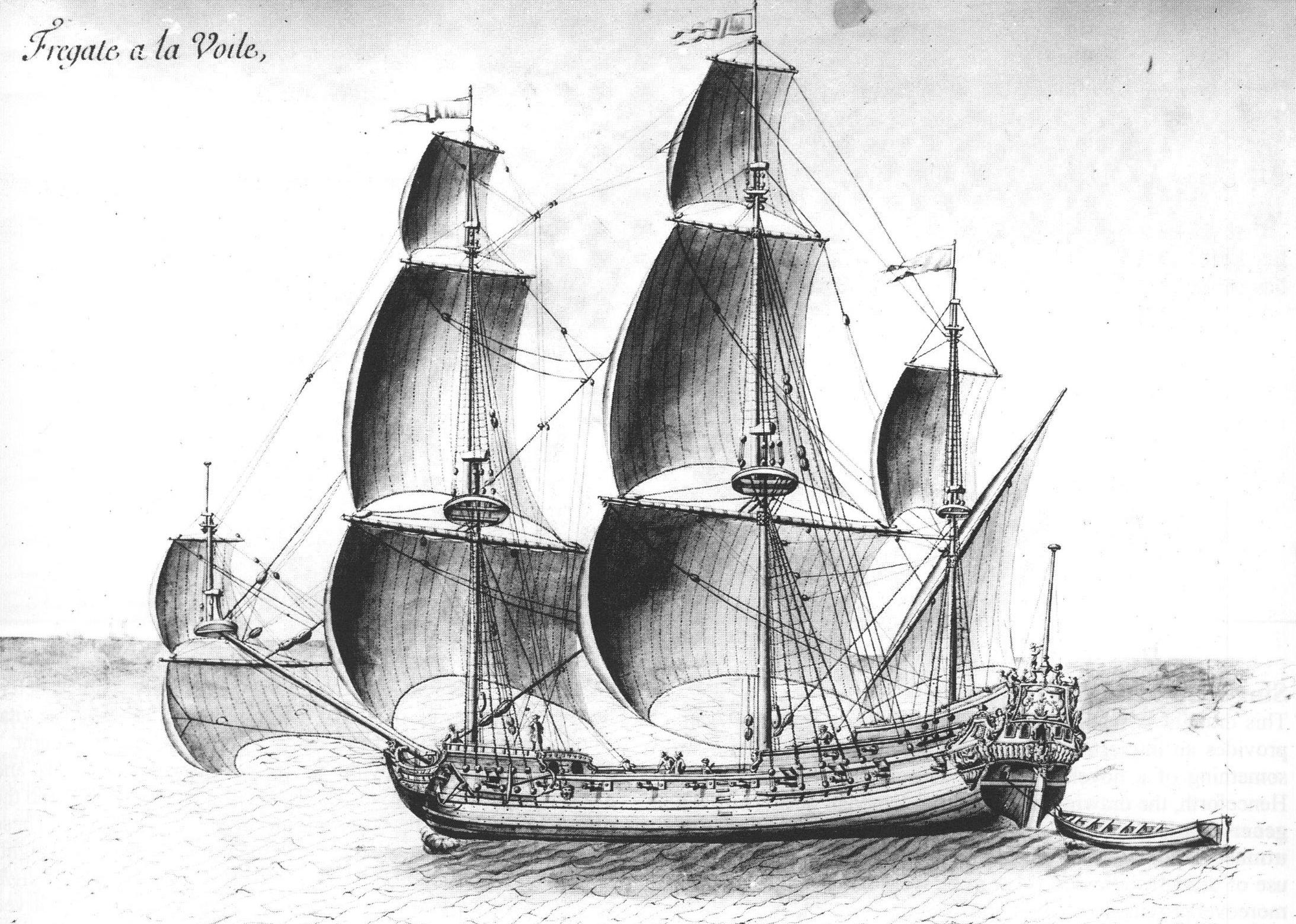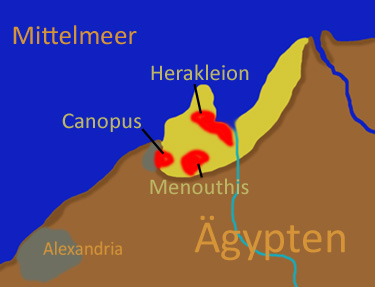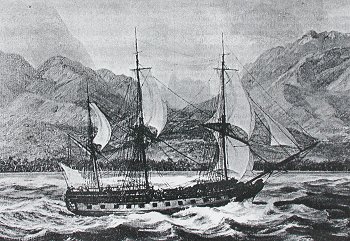|
Action Of 31 March 1800
The action of 31 March 1800 was a naval engagement of the French Revolutionary Wars fought between a Royal Navy squadron and a French Navy ship of the line off Malta in the Mediterranean Sea. By March 1800 Valletta, the Maltese capital, had been under siege for eighteen months and food supplies were severely depleted, a problem exacerbated by the interception and defeat of a French replenishment convoy in mid-February. In an effort to simultaneously obtain help from France and reduce the number of personnel maintained in the city, the naval commander on the island, Contre-amiral Pierre-Charles Villeneuve, ordered his subordinate Contre-amiral Denis Decrès to put to sea with the large ship of the line , which had arrived in the port shortly before the siege began in September 1798. Over 900 men were carried aboard the ship, which was to sail for Toulon under cover of darkness on 30 March. The British had maintained a blockade off Malta since the beginning of the siege, ostensib ... [...More Info...] [...Related Items...] OR: [Wikipedia] [Google] [Baidu] |
Mediterranean Campaign Of 1798
The Mediterranean campaign of 1798 was a series of major naval operations surrounding a French expeditionary force sent to Egypt under Napoleon Bonaparte during the French Revolutionary Wars. The French Republic sought to capture Egypt as the first stage in an effort to threaten British India and support Tipu Sultan, and thus force Great Britain to make peace. Departing Toulon in May 1798 with over 40,000 troops and hundreds of ships, Bonaparte's fleet sailed southeastwards across the Mediterranean Sea. They were followed by a small British squadron under Rear-Admiral Sir Horatio Nelson, later reinforced to 13 ships of the line, whose pursuit was hampered by a lack of scouting frigates and reliable information. Bonaparte's first target was the island of Malta, which was under the government of the Knights of St. John and theoretically granted its owner control of the Central Mediterranean. Bonaparte's forces landed on the island and rapidly overwhelmed the defenders, securing the ... [...More Info...] [...Related Items...] OR: [Wikipedia] [Google] [Baidu] |
Horatio Nelson
Vice-Admiral Horatio Nelson, 1st Viscount Nelson, 1st Duke of Bronte (29 September 1758 – 21 October 1805) was a British flag officer in the Royal Navy. His inspirational leadership, grasp of strategy, and unconventional tactics brought about a number of decisive British naval victories during the French Revolutionary and Napoleonic Wars. He is widely regarded as one of the greatest naval commanders in history. Nelson was born into a moderately prosperous Norfolk family and joined the navy through the influence of his uncle, Maurice Suckling, a high-ranking naval officer. Nelson rose rapidly through the ranks and served with leading naval commanders of the period before obtaining his own command at the age of 20, in 1778. He developed a reputation for personal valour and firm grasp of tactics, but suffered periods of illness and unemployment after the end of the American War of Independence. The outbreak of the French Revolutionary Wars allowed Nelson to return to service, ... [...More Info...] [...Related Items...] OR: [Wikipedia] [Google] [Baidu] |
Frigates
A frigate () is a type of warship. In different eras, the roles and capabilities of ships classified as frigates have varied somewhat. The name frigate in the 17th to early 18th centuries was given to any full-rigged ship built for speed and maneuverability, intended to be used in scouting, escort and patrol roles. The term was applied loosely to ships varying greatly in design. In the second quarter of the 18th century, the 'true frigate' was developed in France. This type of vessel was characterised by possessing only one armed deck, with an unarmed deck below it used for berthing the crew. Late in the 19th century (British and French prototypes were constructed in 1858), armoured frigates were developed as powerful ironclad warships, the term frigate was used because of their single gun deck. Later developments in ironclad ships rendered the frigate designation obsolete and the term fell out of favour. During the Second World War the name 'frigate' was reintroduced to des ... [...More Info...] [...Related Items...] OR: [Wikipedia] [Google] [Baidu] |
Ships Of The Line
A ship of the line was a type of naval warship constructed during the Age of Sail from the 17th century to the mid-19th century. The ship of the line was designed for the naval tactic known as the line of battle, which depended on the two columns of opposing warships maneuvering to volley fire with the cannons along their broadsides. In conflicts where opposing ships were both able to fire from their broadsides, the opponent with more cannons firingand therefore more firepowertypically had an advantage. Since these engagements were almost invariably won by the heaviest ships carrying more of the most powerful guns, the natural progression was to build sailing vessels that were the largest and most powerful of their time. From the end of the 1840s, the introduction of steam power brought less dependence on the wind in battle and led to the construction of screw-driven wooden-hulled ships of the line; a number of purely sail-powered ships were converted to this propulsion mechani ... [...More Info...] [...Related Items...] OR: [Wikipedia] [Google] [Baidu] |
Sir Horatio Nelson
Vice-Admiral Horatio Nelson, 1st Viscount Nelson, 1st Duke of Bronte (29 September 1758 – 21 October 1805) was a British flag officer in the Royal Navy. His inspirational leadership, grasp of strategy, and unconventional tactics brought about a number of decisive British naval victories during the French Revolutionary and Napoleonic Wars. He is widely regarded as one of the greatest naval commanders in history. Nelson was born into a moderately prosperous Norfolk family and joined the navy through the influence of his uncle, Maurice Suckling, a high-ranking naval officer. Nelson rose rapidly through the ranks and served with leading naval commanders of the period before obtaining his own command at the age of 20, in 1778. He developed a reputation for personal valour and firm grasp of tactics, but suffered periods of illness and unemployment after the end of the American War of Independence. The outbreak of the French Revolutionary Wars allowed Nelson to return to service, ... [...More Info...] [...Related Items...] OR: [Wikipedia] [Google] [Baidu] |
Aboukir Bay
The Abū Qīr Bay (sometimes transliterated Abukir Bay or Aboukir Bay) (; Arabic transliteration, transliterated: Khalīj Abū Qīr) is a spacious bay on the Mediterranean Sea near Alexandria in Egypt, lying between the Rosetta mouth of the Nile and the town of Abu Qir. The ancient cities of Canopus (Egypt), Canopus, Heracleion and Menouthis lie submerged beneath the waters of the bay. In 1798 it was the site of the Battle of the Nile, a naval battle fought between the British Royal Navy and the navy of the French First Republic. The bay contains a natural gas field, discovered in the 1970s. Geography Abu Qir Bay lies approximately east of Alexandria, bounded to the southwest by the Abu Qir headland, on which lies the town of Abu Qir, and to the northeast by the Rosetta mouth of the Nile. The bay is a highly fertile Egyptian coastal region but suffers from acute eutrophication and pollution from untreated industrial and domestic waste. The ABU QIR Fertilizers and Chemicals Industr ... [...More Info...] [...Related Items...] OR: [Wikipedia] [Google] [Baidu] |
Alexandria
Alexandria ( or ; ar, ٱلْإِسْكَنْدَرِيَّةُ ; grc-gre, Αλεξάνδρεια, Alexándria) is the second largest city in Egypt, and the largest city on the Mediterranean coast. Founded in by Alexander the Great, Alexandria grew rapidly and became a major centre of Hellenic civilisation, eventually replacing Memphis, in present-day Greater Cairo, as Egypt's capital. During the Hellenistic period, it was home to the Lighthouse of Alexandria, which ranked among the Seven Wonders of the Ancient World, as well as the storied Library of Alexandria. Today, the library is reincarnated in the disc-shaped, ultramodern Bibliotheca Alexandrina. Its 15th-century seafront Qaitbay Citadel is now a museum. Called the "Bride of the Mediterranean" by locals, Alexandria is a popular tourist destination and an important industrial centre due to its natural gas and oil pipelines from Suez. The city extends about along the northern coast of Egypt, and is the largest city on t ... [...More Info...] [...Related Items...] OR: [Wikipedia] [Google] [Baidu] |
Claude-Henri Belgrand De Vaubois
Claude-Henri Belgrand de Vaubois (1 October 1748 in Ville-sous-la-Ferté, Aube – 5 November 1839) was a French general during the French Revolutionary Wars and the Napoleonic Wars. He is best known for the surrender of Malta to the British in 1800. On 20 August 1808 he was created Comte de Belgrand de Vaubois. Later, his name was inscribed on the Arc de Triomphe ( Arche Kléber) in Paris. Early life Vaubois was born at Clairvaux (now part of Ville-sous-la-Ferté, Aube). In 1765 he was appointed a lieutenant of artillery in the Regiment of Metz. In 1789 he was appointed a Captain Commandant of Artillery. In 1791 he became a lieutenant colonel of volunteers. During service with the Army of the Alps, he was promoted to general of brigade in September 1793 and to general of division in 1796. After transferring to General Napoleon Bonaparte's Army of Italy, he led his troops in the capture of Livorno. Appointed to command a division in the Bassano campaign, he participated in the v ... [...More Info...] [...Related Items...] OR: [Wikipedia] [Google] [Baidu] |
Egypt
Egypt ( ar, مصر , ), officially the Arab Republic of Egypt, is a transcontinental country spanning the northeast corner of Africa and southwest corner of Asia via a land bridge formed by the Sinai Peninsula. It is bordered by the Mediterranean Sea to the north, the Gaza Strip of Palestine and Israel to the northeast, the Red Sea to the east, Sudan to the south, and Libya to the west. The Gulf of Aqaba in the northeast separates Egypt from Jordan and Saudi Arabia. Cairo is the capital and largest city of Egypt, while Alexandria, the second-largest city, is an important industrial and tourist hub at the Mediterranean coast. At approximately 100 million inhabitants, Egypt is the 14th-most populated country in the world. Egypt has one of the longest histories of any country, tracing its heritage along the Nile Delta back to the 6th–4th millennia BCE. Considered a cradle of civilisation, Ancient Egypt saw some of the earliest developments of writing, agriculture, ur ... [...More Info...] [...Related Items...] OR: [Wikipedia] [Google] [Baidu] |
Napoleon Bonaparte
Napoleon Bonaparte ; it, Napoleone Bonaparte, ; co, Napulione Buonaparte. (born Napoleone Buonaparte; 15 August 1769 – 5 May 1821), later known by his regnal name Napoleon I, was a French military commander and political leader who rose to prominence during the French Revolution and led Military career of Napoleon Bonaparte, successful campaigns during the French Revolutionary Wars, Revolutionary Wars. He was the ''de facto'' leader of the First French Republic, French Republic as First Consul from 1799 to 1804, then Emperor of the French from 1804 until 1814 and again in Hundred Days, 1815. Napoleon's political and cultural legacy endures to this day, as a highly celebrated and controversial leader. He initiated many liberal reforms that have persisted in society, and is considered one of the greatest military commanders in history. His wars and campaigns are studied by militaries all over the world. Between three and six million civilians and soldiers Napoleonic Wa ... [...More Info...] [...Related Items...] OR: [Wikipedia] [Google] [Baidu] |
Frigate
A frigate () is a type of warship. In different eras, the roles and capabilities of ships classified as frigates have varied somewhat. The name frigate in the 17th to early 18th centuries was given to any full-rigged ship built for speed and maneuverability, intended to be used in scouting, escort and patrol roles. The term was applied loosely to ships varying greatly in design. In the second quarter of the 18th century, the 'true frigate' was developed in France. This type of vessel was characterised by possessing only one armed deck, with an unarmed deck below it used for berthing the crew. Late in the 19th century (British and French prototypes were constructed in 1858), armoured frigates were developed as powerful ironclad warships, the term frigate was used because of their single gun deck. Later developments in ironclad ships rendered the frigate designation obsolete and the term fell out of favour. During the Second World War the name 'frigate' was reintroduced to des ... [...More Info...] [...Related Items...] OR: [Wikipedia] [Google] [Baidu] |
Sir Edward Berry
Rear Admiral Sir Edward Berry, 1st Baronet, KCB (17 April 1768 – 13 February 1831) was an officer in Britain's Royal Navy primarily known for his role as flag captain of Rear Admiral Horatio Nelson's ship HMS ''Vanguard'' at the Battle of the Nile, prior to his knighthood in 1798. He had a long and prestigious naval career and also commanded HMS ''Agamemnon'' at the Battle of Trafalgar. Early life and naval career Berry was born in 1768, the son of a London merchant who died at an early age leaving a widow, five daughters and two sons in perilous financial circumstances. His early education was provided by his uncle, the Reverend Titus Berry, in Norwich. It was under the patronage of one of Titus Berry's former pupils Lord Mulgrave, that in 1779 Berry entered the Navy as a volunteer aboard the , at the age of 10. Service in the French Revolutionary Wars As a reward for his gallantry in boarding a French ship, Berry was promoted to Lieutenant on 20 January 1794 and in May ... [...More Info...] [...Related Items...] OR: [Wikipedia] [Google] [Baidu] |









